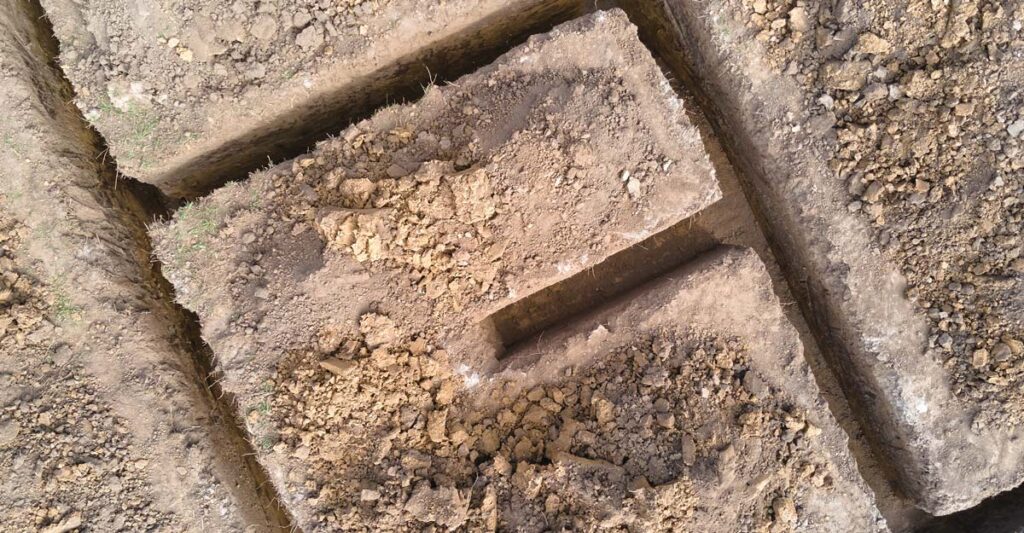Building a basement foundation is a significant decision when constructing a new home or expanding an existing one. It offers extra space for various purposes, such as storage, recreation, or even additional living areas. However, before embarking on this endeavor, it’s essential to understand whether a basement foundation is feasible for your chosen location. In this article, we will explore the factors that influence basement construction and answer the question, “Can I build a basement foundation in any location?”
Table of Contents
- Understanding Soil Composition
- Evaluating Water Table Levels
- Considering Regional Climate
- Assessing Local Building Codes and Regulations
- Consulting with a Professional
- Determining Costs and Budgeting
- Ensuring Proper Drainage
- Structural Considerations
- Conclusion
A basement foundation can significantly increase the usable space in a home and provide numerous advantages. However, it’s important to evaluate various factors before determining whether a basement foundation is suitable for your location.
1. Understanding Soil Composition

The type and composition of the soil in your area play a crucial role in basement construction. Some soil types, such as clay or expansive soils, can pose challenges due to their tendency to expand and contract with moisture variations. It’s vital to assess the soil’s load-bearing capacity and stability to ensure a solid foundation.
2. Evaluating Water Table Levels
The water table refers to the level at which the ground is saturated with water. High water tables can be problematic for basement construction, as they increase the risk of water infiltration and potential flooding. It’s necessary to evaluate the water table levels in your area to determine if building a concrete basement foundation is feasible. A common solution for a home with a high water table is to install a sump-pump in your basement.
3. Considering Regional Climate
The climate of your region also impacts basement construction. Areas prone to heavy rainfall or frequent flooding may not be suitable for basements. Additionally, regions with high levels of groundwater or freeze-thaw cycles require additional waterproofing and insulation measures. Understanding the regional climate is essential for making an informed decision. In Southern Alberta, the climate is typically generous to foundations as there is not a ton of rainfall in a year.
4. Assessing Local Building Codes and Regulations
Each locality has specific building codes and regulations that govern construction projects. These codes address safety standards, setback requirements, foundation specifications, and more. Before planning a basement foundation, it’s crucial to consult with local authorities or a building professional to ensure compliance with these regulations.
5. Consulting with a Professional

To assess the feasibility of a basement foundation, it’s advisable to consult with an experienced contractor such as FramCon Construction. They can evaluate the site conditions, conduct soil tests, and provide expert guidance based on their knowledge and expertise. Their professional opinion will help determine whether building a basement foundation is viable for your location.
6. Determining Costs and Budgeting
Basement construction involves significant costs, including excavation, materials, labor, and additional structural considerations. It’s important to evaluate your budget and determine whether building a basement foundation aligns with your financial resources. Obtaining detailed cost estimates from professionals will help you make an informed decision.
7. Ensuring Proper Drainage

Proper drainage is crucial for a basement foundation to prevent water seepage and potential damage. This involves installing effective waterproofing systems, perimeter drains, and ensuring appropriate grading around the foundation. Adequate drainage measures are essential to maintain a dry and habitable basement space.
8. Structural Considerations
Building a basement foundation requires careful consideration of the structural aspects. It involves designing the foundation to withstand the loads imposed by the structure above, including the weight of the walls, floors, and roof. A structural engineer can provide valuable insights and ensure the stability and safety of the basement foundation.
9. Conclusion
While the concept of having a basement foundation is appealing, its feasibility depends on various factors. Understanding the soil composition, evaluating water table levels, considering the regional climate, adhering to local building codes, consulting with professionals, budgeting appropriately, and addressing drainage and structural considerations are crucial steps in determining whether a basement foundation is suitable for your location.
